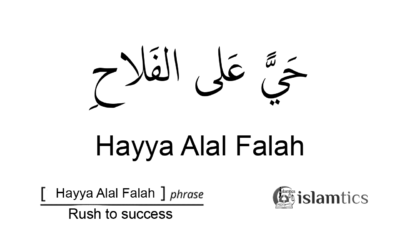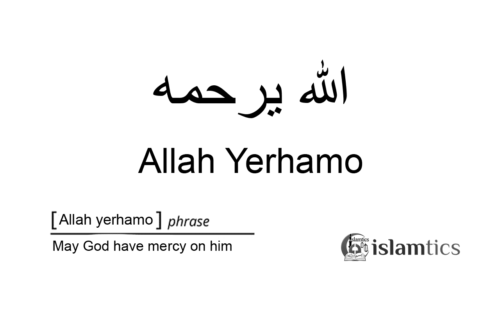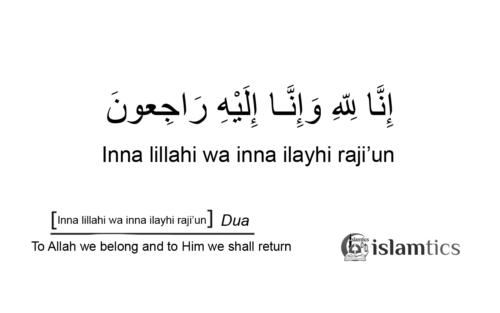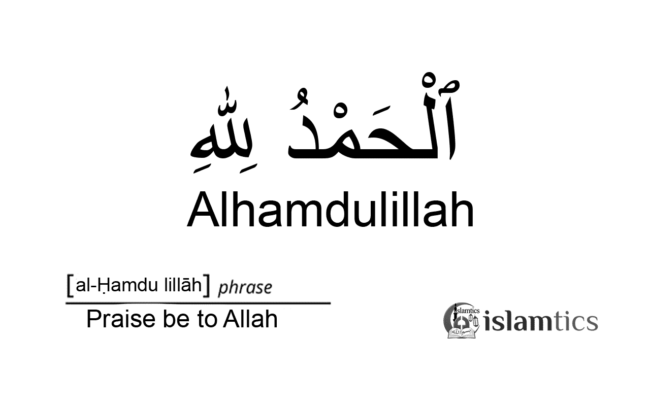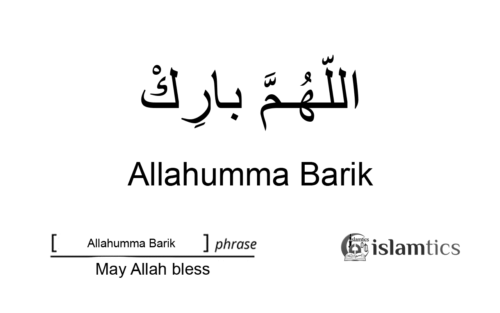Tahajjud (تَهَجَّدَ ) is a voluntary prayer. It is a night prayer that is offered to attain mental strength and peace. Abu Hurayra narrated that the Messenger of Allah (ﷺ) said, “The very best prayer after the compulsory prayers is the nighttime –Tahajjud prayer.”(Muslim)
Table of Contents
Tahajjud Meaning
Tahajjud in Arabic is rooted in the word “hajada,” which means “to stay awake” or “to spend the night awake.” Relevant to Islam, the Night Prayer refers to the voluntary prayer performed during the late hours of the night after the Isha prayer and before the Fajr salah.
The term Tahajjud is often replaced with other names such as “Night Prayer” or “Qiyam al-Layl.” It is an optional prayer and holds great significance in Islam. the best time for Tahajjud is in the last third portion of the night, closer to the pre-dawn hours.
Tahajjud time
The Tahajjud time is usually after Isha prayer and before Fajr prayer. Tahajjud means to give up sleep, which is why this prayer is preferably performed during the last third of the night.
This time is when angels descend from heaven on Allah’s command to take Dua of all of Allah’s servants. During this time, Allah forgives the offenders, who have atoned for their sins.
Tahajjud Dua
When the Prophet (ﷺ) got up at night to offer the Tahajjud prayer, he used to say:
Allahumma lakal-hamd. Anta qaiyyimus-samawati wal-ard wa man fihinna. Walakal-hamd, Laka mulkus-samawati wal-ard wa man fihinna. Walakal-hamd, anta nurus-samawati wal-ard. Wa lakal-hamd, anta-l-haq wa wa’duka-lhaq, wa liqa’uka Haq, wa qauluka Haq, wal-jannatu Han wan-naru Haq wannabiyuna Haq. Wa Muhammadun, sallal-lahu’alaihi wasallam, Haq, was-sa’atu Haq. Allahumma aslamtu Laka wabika amantu, wa ‘Alaika tawakkaltu, wa ilaika anabtu wa bika khasamtu, wa ilaika hakamtu faghfir li ma qaddamtu wama akh-khartu wama as-rartu wama’a lantu, anta-l-muqaddim wa anta-l-mu akh-khir, la ilaha illa anta (or la ilaha ghairuka).
“. اللَّهُمَّ لَكَ الْحَمْدُ أَنْتَ قَيِّمُ السَّمَوَاتِ وَالأَرْضِ وَمَنْ فِيهِنَّ وَلَكَ الْحَمْدُ، لَكَ مُلْكُ السَّمَوَاتِ وَالأَرْضِ وَمَنْ فِيهِنَّ، وَلَكَ الْحَمْدُ أَنْتَ نُورُ السَّمَوَاتِ وَالأَرْضِ، وَلَكَ الْحَمْدُ أَنْتَ الْحَقُّ، وَوَعْدُكَ الْحَقُّ، وَلِقَاؤُكَ حَقٌّ، وَقَوْلُكَ حَقٌّ، وَالْجَنَّةُ حَقٌّ، وَالنَّارُ حَقٌّ. وَالنَّبِيُّونَ حَقٌّ، وَمُحَمَّدٌ صلى الله عليه وسلم حَقٌّ، وَالسَّاعَةُ حَقٌّ، اللَّهُمَّ لَكَ أَسْلَمْتُ، وَبِكَ آمَنْتُ وَعَلَيْكَ تَوَكَّلْتُ، وَإِلَيْكَ أَنَبْتُ. وَبِكَ خَاصَمْتُ، وَإِلَيْكَ حَاكَمْتُ، فَاغْفِرْ لِي مَا قَدَّمْتُ وَمَا أَخَّرْتُ، وَمَا أَسْرَرْتُ وَمَا أَعْلَنْتُ، أَنْتَ الْمُقَدِّمُ وَأَنْتَ الْمُؤَخِّرُ، لاَ إِلَهَ إِلاَّ أَنْتَ ـ أَوْ لاَ إِلَهَ غَيْرُكَ
O, Allah! All the praises are for you, You are the Sustainer of the Heavens and the Earth, And whatever is in them. All the praises are for You; You have the possession of the Heavens and the Earth And whatever is in them. All the praises are for You; You are the Light of the Heavens and the Earth And all the praises are for You;
You are the Truth and Your Promise is the truth, And to meet You is true, Your Word is the truth, And the Paradise is true, And Hellfire is true, And all the Prophets are true, And Muhammad s.a.w. is true, And the Day of Resurrection is true.
O Allah! to You I submit, in You I believe, and to You do I rely upon. And to You, I repent, And by You I face my adversaries, And to You, I will be judged. So forgive me my previous and later sins; that which I concealed and revealed; You are the One Who brings forth and suspends. There is none to be worshipped but you. [ Sahih al-Bukhari]

Tahajjud Benefits
“If there is something you want in your life, and you are not praying Tahajjud for it, then you don’t really want it.” We will cover several benefits for individuals who perform nights prayer. Some of the benefits of Tahajjud are:
- Closeness to Allah: Tahajjud is a time when the world is quiet, and distractions are minimal. Engaging in this Salah allows individuals to establish a deep connection with Allah, as they dedicate this intimate time solely to His worship. It is an opportunity to seek His forgiveness, blessings, and guidance, and to strengthen one’s spiritual bond with the Creator.
- Increased blessings in your life: Engaging in Tahajjud shows one’s commitment to seeking Allah’s pleasure and following the example of the Prophet Muhammad (ﷺ). As a result, individuals often experience an increase in blessings and goodness in various aspects of their lives. Tahajjud can bring about spiritual, emotional, and material benefits, as it invites the blessings of Allah into one’s daily affairs.
- Opens the doors Mercy and Forgiveness: It was narrated by al-Bukhaari The Lord descends every night to the lowest heaven when one-third of the night remains and says: ‘Who will call upon Me, that I may answer Him? Who will ask of Me, that I may give him? Who will seek My forgiveness, that I may forgive him?’”
- Strengthen willpower and discipline: Waking up for Tahajjud requires determination, willpower, and discipline. By consistently performing this prayer, individuals cultivate these qualities, which can positively impact other aspects of their lives. It helps develop a strong sense of self-discipline and enhances the ability to prioritize and allocate time for important matters.
- Best voluntary prayers: Another major benefit of performing The night prayer is that it helps with everyday problems. While performing this prayer, one completely places their trust in Allah and leaves all worldly worries. When a believer leaves everything to the Almighty, the supreme power then assists different sources.
“The dua’ made at tahajjud is like an arrow that doesn’t miss it’s target.”
Imam Ash Shafi’i
So my dear brothers and sisters, let’s make an intention to pray at least 2 rakahs before Fajr tonight, and spend and feel that special moment in the company of Allah. Ask for whatever your heart wishes for, pour your heart out to Him, cry in the sujood, and you will find whatever you had lost.
Conditions of performing tahajjud
1) Make an intention of performing Tahajjud prayer and rearrange to wake up finally a piece of the night.
2) Make sure to perform Wudu as one should perform before every tahajjud salah.
3) Move to a clean and quiet place in the house away from distractions.
4) Offer at least two Raka`ts up to 12, depending on one`s willpower.
5) Don’t forget to supplicate to Allah SWT for one`s just and rightful requests in order to get benefited from this exceedingly rewarding hour of darkness.

How to perform Tahajjud Prayer
The Tahajjud prayer is just like any other Sunnah prayer. It is a minimum prayer of two Rakat as mentioned by the Prophet (ﷺ): “When any one of you gets up at night, he should begin the prayer with two brief Rakat” (Sahih Muslim).
You can Perform Tahajjud only after Isha prayer and after (waking up from) a sleep even if it is a short nap but before Fajr.
The maximum number of Rakat for the Sunnah Tahajjud prayers is not limited to any specific number. You may perform as many as you want, as long as it is done in pairs. which means you have to give salam at the end of 2nd rakat and start again
| 1st Rakat | 2nd Rakat |
| 1. First, make the Niyyah (intention) by reciting “I intend to perform two rakats of the salat al Tahajjud” 2. You say Takbir “Allahu Akbar” This starts the prayer. 3. After you say: “Audhu billahi min-ash-shayta -nir-rajeem Bismillah-ir-Rahman-ir-raheem” 4. Reciting Surah Al-Fatiha 5. Another portion (Surah) of the Quran. 6. Go into Ruku (the bowing position) and We say “Subahaana Rabbiyal Azeem” 7. Go into the 1st Sajdah and We say “Subahaana Rabbiyal Aa’la” 8. Now sit up from the first Sajdah in the jalsa position (Sitting position between the two Sajdah) 9. Now go into the 2nd Sajdah and We say “Subahaana Rabbiyal Aa’la” | 1. Rise up to proceed to the next rakaat, 2. You say “Bismillah-ir-Rahman-ir-raheem” 3. Reciting Surah Al-Fatiha 4. Another portion (Surah) of the Quran. 5. Go into Ruku (the bowing position) and We say “Subahaana Rabbiyal Azeem” 6. Go into the 1st Sajdah and We say “Subahaana Rabbiyal Aa’la” 7. Now sit up from the first Sajdah in the jalsa position (Sitting position between the two Sajdahs) 8. Now go into the 2nd Sajdah and We say “Subahaana Rabbiyal Aa’la” 9. After this, you sit for the complete Tashshahud: You recite At-tahiyyat, Allah-umma Salli, Allah-umma Barik, and Rabbana. 10. By turning your face to the right first and saying “Assalamu alaikum wa Rahmatullah” and then to his left and doing the same |
How to Maintain Tahajjud Routine
Trying to wake up for Tahajjud + fajr is something that you should try to do consistently. But it can be harder on some days like in winter when the days are shorter or when you have other commitment studies/lectures and s when you just want to sleep for longer and not wake up. However, these are some things that can help me form a routine:
1. Sleep Early
This means that you’re getting enough sleep to not be as tired when you wake up. try and go to sleep around the same time every night so that when you do wake up for Tahajjud, your body adjusts over time to this new routine.
Try to sleep by 11 pm and your body will naturally start to wake me up around 5-5:30 am because of this.
2. Setting Multiple Alarms
You may be who will wake up your whole house with alarms before it even wakes you up. But if you want to wake up at 5:45, You should try to set them for 5:40, 5:45, 5:50, and 6:00 and eventually you will get tired of snoozing them all and just get out of bed.
3. Repeating ‘Prayer Is Better Than Sleep’ In your Head
Sometimes it is so tempting to say ‘i’ll get up in 5 minutes…’ and then that 5 minutes turn into 2 hours. when having the urge to say this to myself and close my eyes, I try and battle it by repeating that phrase in my head which reminds me of the blessings of salat and helps me get out of bed.
4. Waking Up 30 Minutes Before Fajr
By the time you finish praying tahajjud, it is fajr time and you get to complete the first prayer on time as well. this will make it feel easier as you’re not waking up in the middle of the night and then going back to sleep and missing fajr or having to wake up for it again you get to pray both around the same time.
5. Doing Something After Fajr
Sometimes it’s hard to go back to sleep after fajr but you still want some rest. try to do some reading after Fajr to make me sleepy so that in an hour or two, you would go back to sleep for another 2 hours and wake up feeling well rested and continue with the rest of the day. you should always be the most productive these days. of course, it depends on your life schedule and what is going on in your life as well.
6. Reading About The Blessings Of Tahajjud
Understanding this would make you want to pray tahajjud even more as you know the benefits and beauty of waking up in the middle of the night when everyone else is asleep and Allah has descended to the lowest heaven in the third part of the night. it makes you want to wake up and be close to Him.
These are just what works for me. if these do not work for you, try and see what does and In Sha Allah you will form your own routine. May Allah make it easy for us all, Ameen.
Hadith about Tahajjud
Narrated Abu Huraira:
Allah’s Messenger (ﷺ) said, “Our Lord, the Blessed, the Superior, comes every night down on the nearest Heaven to us when the last third of the night remains, saying: “Is there anyone to invoke Me, so that I may respond to invocation? Is there anyone to ask Me, so that I may grant him his request? Is there anyone seeking My forgiveness, so that I may forgive him?”
Sahih al-Bukhari 1145
Abd Allah ibn Salam (Allah be pleased with him) reports that the Messenger of Allah (ﷺ) said, “O people! Spread the salams, feed others, maintain family ties, and pray at night when others sleep and you will enter Heaven safely.”
[Tirmidhi, Hakim]
Abu Huraira said he heard Allah’s Messenger say, “The most excellent prayer after that which is obligatory is one in the depth of the night.”
Mishkat al-Masabih 1236





